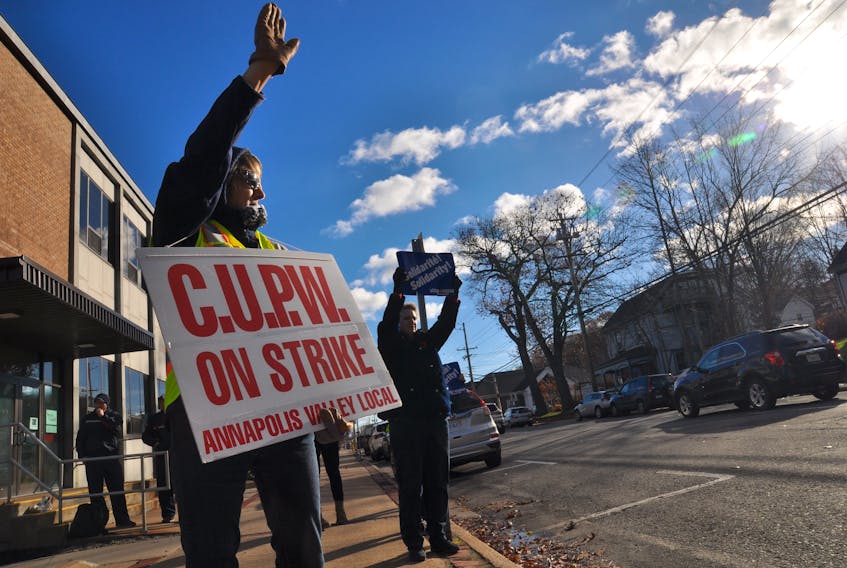KENTVILLE – Geof Turner walks 25 kilometres per day on his postal routes in Kentville.
He says new routes and added deliveries mean he’s walking a much longer distance than normal, and that most of his fellow letter carriers walk at least 20 kilometres.
Turner is the president of the Annapolis Valley Local of the Canadian Union of Postal Workers, which received instructions to begin its strike rotation Nov. 8. He says the added pressure on Annapolis Valley workers – and others across the province – is not sustainable and must change.
“We want to make sure the post office is something that’s going to last and continue being strong for a long time. The way things are set up now – things have to change,” he says.
- 'We're just looking to be treated fairly': Postal workers begin rotating strikes
- Postal workers serve strike notice: 'We want Canada Post to know how serious we are'
Turner says longer routes and a lack of understanding from Canada Post of the extra time these require are chief among the concerns of Annapolis Valley workers.

He says added deliveries like a new flyer system – which works on a three-day cycle and requires workers to walk to houses on top of their daily routes – are what have driven up his kilometre count.
Turner also says Rural Service Mail Carriers, or RSMCs, have begun delivering more packages directly to recipients’ doors, adding distance and time without compensation for either.
This is the product of formulas used by Canada Post, according to Turner, to determine what can be added to a worker’s route. He says these extra distances are not allowed for within the formulas and that is why the union wants these formulas to be shared with its workers.
“The route measurement system is flawed, and the compensation system for extra time and distance worked isn’t mathematical - this is the problem,” says Turner.
“It’s got to change, because the walking distance and time is substantially more here. Most people in the city have vehicles, but these are all foot routes.”
Postal workers are also demonstrating for better workplace safety, better hours and equal pay and treatment between urban and rural workers, who have historically been separated by a significant pay and benefits gap.
The Annapolis Valley union local extends from Mount Uniacke to Digby and counts 120 members and 26 offices – 20 of which are used only by rural workers.
Turner says the union is also fighting for both groups to share one collective bargaining agreement, rather than the two separate ones that exist now.
He says while small steps toward progress are being made, the strike has “still been a little frustrating” for workers who hope the public sees the validity of this public service.
“There are a lot of people who don’t have internet access, who don’t have bank accounts, all of whom depend on the post office. This is a service that is essential for them, and that’s what we’re here for today,” says Turner.









